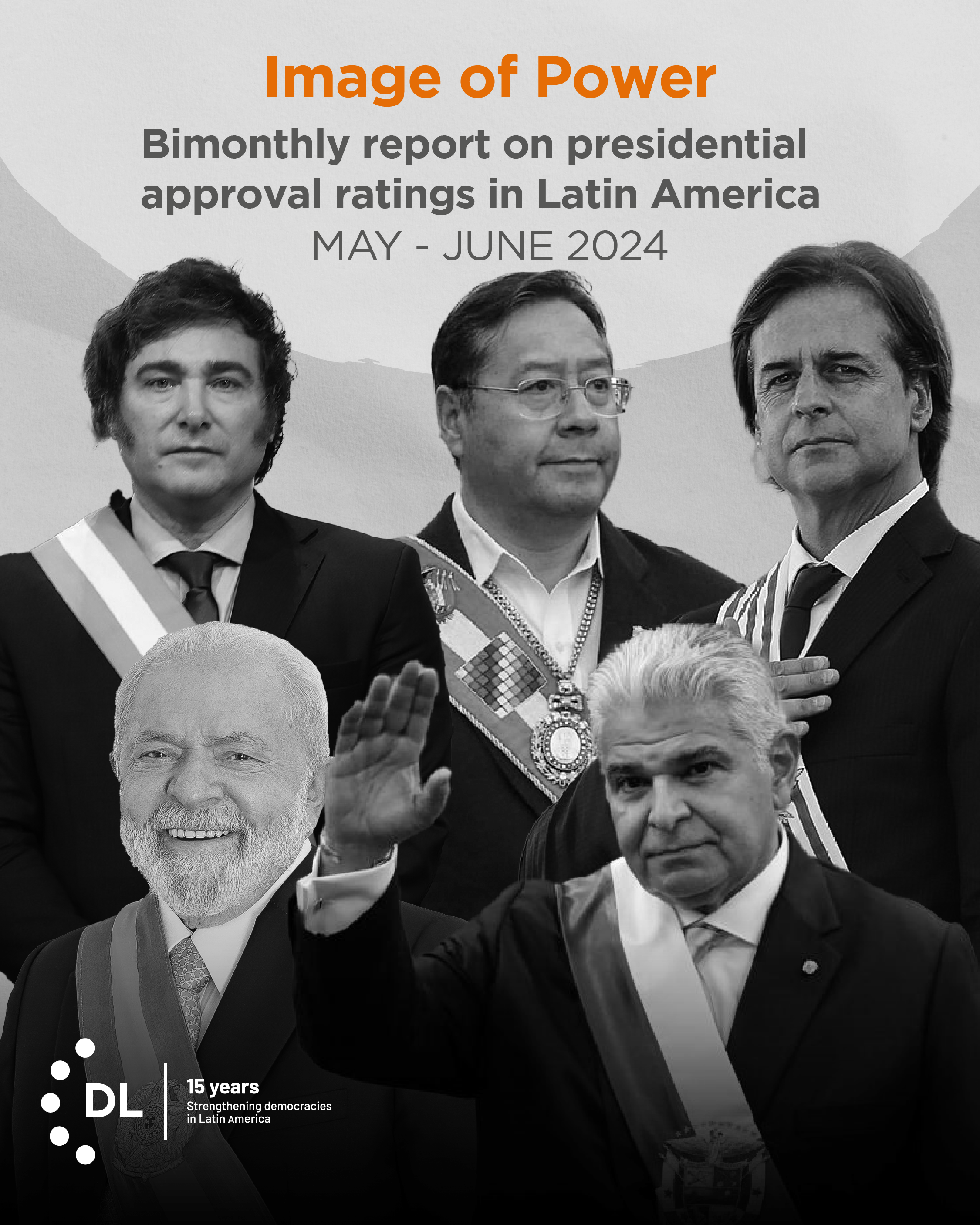
Image of Power | MAY – JUNE 2024

Welcome to a new edition of “Image of Power,” Directorio Legislativo’s Latin American presidential approval monitor. In this edition we will cover the following topics:
- Claudia Sheinbaum won this June’s election in Mexico by a margin of 32 points, a record that only a few presidents have achieved (or surpassed) since the third wave of democratization in Latin America. However, such a triumph comes with its challenges: maintaining MORENA’s internal cohesion and renewing leadership, beyond the figure of Andrés Manuel López Obrador.
The recent history of Latin America shows that the inability to renew leaderships ends up internally fragmenting once hegemonic political spaces. They also reveal that the process of reordering political maps can be long and costly, as is currently being seen in Bolivia.
- José Raúl Mulino, Panama’s new president, faces the challenge of differentiating himself from his mentor Ricardo Martinelli in the context of unusual political fragmentation. For the first time since Panama’s return to democracy, no party reached 20 seats in the Assembly. Even more surprising is that the first legislative minority is made up of independent legislators, that is to say, they did not support any presidential candidate.
- In Brazil, Lula Da Silva managed to contain the fall in his image suffered in the first months of the year. However, he faces a complex economic outlook that could force him to cut social spending.
- After six months of exhausting negotiations, Javier Milei achieved his first victory in Congress of Argentina with the approval of the Bases Law and the fiscal package. No president since the return to democracy had ever had such a reduced legislative bloc, nor had he depended so much on the agreement with the different sectors of the opposition, achieved in some cases by means of pressure measures rather than consensus. In terms of confidence in the government, the president’s numbers continue to stand out for their stability.
- Luis Abinader won reelection of Dominican Republic in the first round with 57.4%, while Partido Revolucionario Moderno secured a majority in both houses of Congress. The results were expected, however the ruling party expected to obtain even greater support. Throughout his first presidency, Abinader managed to maintain a very high approval rating of over 60%
